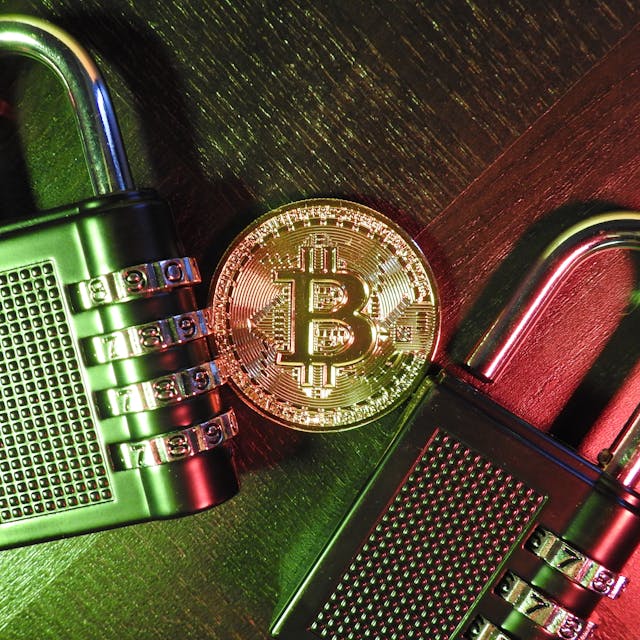Securing your digital assets is of utmost importance in the rapidly evolving world of cryptocurrencies. Since the ownership and management of digital assets rely on private keys stored in crypto wallets, it is very important to take proactive measures to safeguard these wallets. Let us explore the best practices in this comprehensive guide for keeping your crypto wallet and digital assets safe from potential threats such as hacking, theft, and loss.
What is a Crypto wallet?
Digital assets with value, such as cryptocurrencies, photos, videos, documents, or anything digital, are usually stored, sent, and received with a software program or a physical device called a crypto wallet.
These crypto wallets serve as an interface to interact with the blockchain network. It also provides a secure way of storing and transacting cryptocurrencies such as Bitcoin, Ethereum, USDT, and other digital assets. It holds pairs of cryptographic keys known as private and public keys used to access and manage cryptocurrency funds.
The public key functions as the user’s wallet address, visible to others for receiving funds, whereas the private key is confidential and authorizes transactions and access the user’s funds.

Types of Crypto wallets
There are different types of Crypto wallets, including:
1. Software Wallets: These include Mobile, desktop, and web wallets.
- Desktop Wallets: A desktop wallet is a software program installed on your computer or laptop, granting full control over your private keys.
- Mobile Wallets: These come in the form of mobile applications installed on your smartphone or tablet that allow access to manage your crypto on the go.
- Web Wallets: Simply online wallets accessed through a web browser. Cryptocurrency exchanges or service providers often provide it.
2. Hardware Wallets:
Just like its name, these are physical devices. They are designed to store private keys offline, providing an extra layer of security against potential theft from hackers or malware attacks.
3. Paper Wallets:
Popularly known as offline storage, this involves printing the user’s private and public keys or phrases on paper. It is a low-tech solution for cold storage.
A crypto wallet’s primary function is to store your private keys securely. You cannot access or use your cryptocurrencies however you like without your private keys.
You can also monitor your balance on your crypto wallets, which provides the user interface to do so. It also carries out transactions (sending and receiving) and interacts with decentralized applications (dApps) on various blockchain networks.
Please note that crypto wallets only store your private keys, giving you control over your funds on the blockchain, and do not ‘actually’ store your cryptocurrencies. The cryptocurrencies itself are logged and managed on the respective blockchain networks.
Hence, selecting a secure and reputable crypto wallet is essential for protecting your digital assets from potential threats such as hacking, theft, or loss of funds.

Examples of popular Crypto wallets
- MetaMask: this comes as a browser application and a mobile application. It is common in the blockchain community to securely store various digital assets and interact with dApps (decentralized applications) on the Ethereum blockchain.
- Trust Wallet: This is a mobile wallet application. Android and iOS devices can access this wallet by downloading it from the Play Store and App Store. It supports a wide range of cryptocurrencies.
- Coinbase Wallet: This is also very popular in the blockchain community, allowing users to interact with dApps and carry out transactions on the blockchain.
Other crypto wallets include Ledger Nano S/X (hardware wallet), MyEtherWallet (web-based wallet), Exodus, Trezor, etc.
Jackocoins also provides a free crypto wallet and helps cryptocurrency buyers and sellers from across the world find each other and trade crypto for fiat. Our user-friendly mobile app also provides convenience to store and sell your cryptocurrency for naira at no extra cost.

Tips for keeping crypto wallets and digital assets safe
1. Be Smart and Vigilant
The most important rule to safeguarding your assets is never to click any unverifiable link. By sticking to this “golden rule,” you are guaranteed never to lose access to your crypto wallet for cheap tricks.
2. Research and adopt a Secure Wallet:
Depending on your specific needs, you must also understand the different types of wallets (hot, cold, hardware, software). Ensure you select crypto wallets from trusted and established providers because they have a proven track record of prioritizing security measures and best practices.
3. Make use of Robust Passwords and Multi-Factor Authentication:
Ensure your password(s) are strong, unique, and complex to reduce the chances of it getting easily guessed. Meanwhile, You may also consider adopting a second layer of security by enabling two-factor authentication (2FA) or multi-factor authentication (MFA) to protect against unauthorized access.
4. Ensure secure backup of your recovery phrases and Private Keys:
Your private keys and recovery phrases are secret codes that allow you to access and manage your crypto wallet assets, and you should never share them with anyone.
5. Keep Crypto Wallet Software Up to Date:
Hackers often create new malware, phishing attacks to take advantage of any vulnerability discovered in crypto wallet security protocols. This is why the most efficient countermeasure is to keep your crypto wallets running on the latest updates.
By following these steps, you reduce the risk of losing access to your crypto wallet. Always remember to put proactive measures when doing crypto transactions and use reliable crypto platforms like Jackocoins for secure trades. Simply download the app, create your account and start trading with zero worries!
Visits: 21

